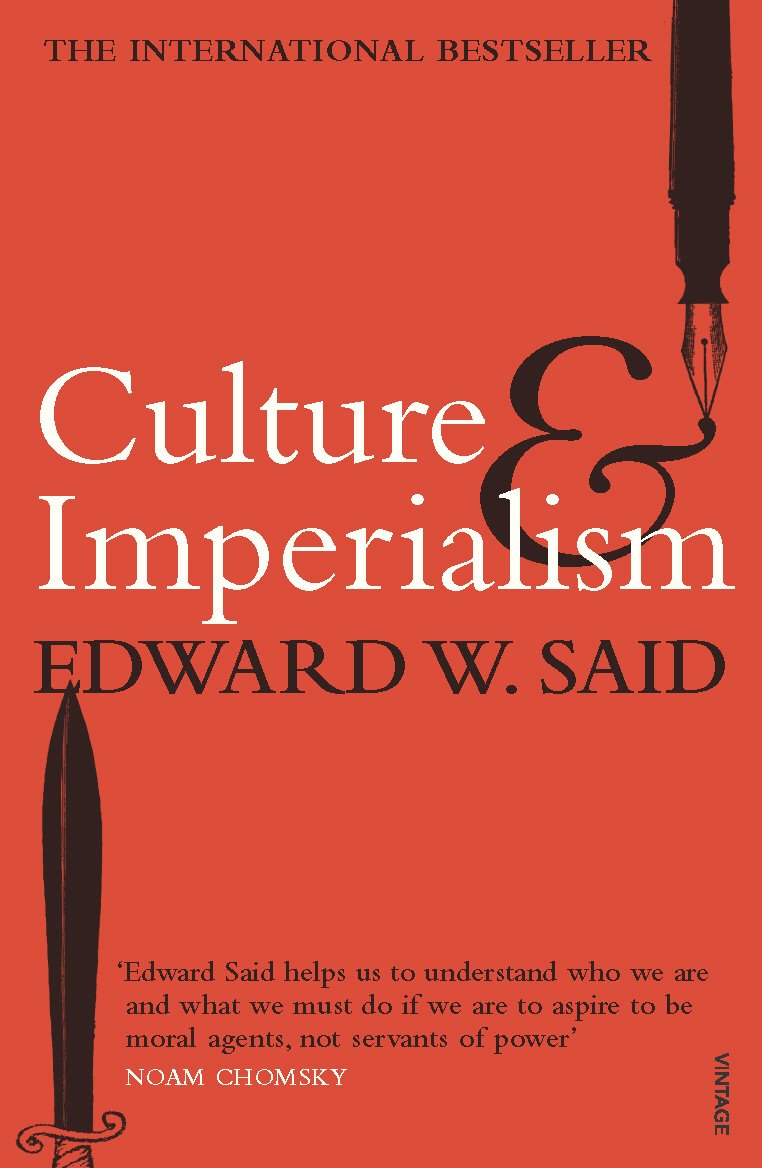About this deal
Showing, kind of, how the novel implicitly reconfirms empire and imperialist ideology, sometimes less explicit (Austen) sometimes more so (Conrad). Still, the book is interesting as a social document on the thinking of imperialism and culture of the time. Every time I start writing a review for this in my head it feels like I’m having a fight with unknown people. To be aware of this fact, it is necessary, according to Said, to look at how colonialists and imperialists employed "culture" to control distant land and peoples. In this series of essays, he "consider[s] it the aesthetic object whose connection to the expanding societies of Britain and France is particularly interesting to study.
Hotjar sets this cookie to know whether a user is included in the data sampling defined by the site's daily session limit.
In 1999, with his friend Daniel Barenboim, Said co-founded the West–Eastern Divan Orchestra, based in Seville, which comprises young Israeli, Palestinian, and Arab musicians. At the same time, it’s very obvious that Lenin is somehow absent from the book, rather there is a shift of perspective towards thinkers who experienced imperialism from the other side of it. Colonialism is ‘always a consequence of imperialism’ and ‘the implanting of settlements on distant territory’.
Then again, working in international development where we teach them brown folks how to wash their hands and defecate in a more civilized manner in exchange for food made in USA and human rights, gets you a little fascinated with imperialist ideology and colonial practice, doesn’t it. Said indicts public intellectuals in their silence towards the continuing narrative of Western exceptionalism and superiority. Tim Brennan nicely analyzes the role of philologists and of geography in Said’s Arab trilogy: Orientalism (1978), The Question of Palestine (1979), and Covering Islam (1981). A landmark work from the author of Orientalism that explores the long-overlooked connections between the Western imperial endeavor and the culture that both reflected and reinforced it. Would he have said the most-followed tweets belong to “privileged ethnic groups” and that the rest of the world that is trying to emulate them are all but going to get crushed, or worse, ignored?that said's reading of austen overasssumes that mansfield park's titular estate is rendered a site of social harmony. He analyses Verdi's opera Aida as an example of his thesis on the Imperialising nature of western culture because of factors like the fact that Verdi didn't present a thoroughly accurate version of Egyptian society in the opera. Said covers a broad area but only from a narrow perspective - that of the West being bad and non-Western cultures being its victims and morally superior.
On the contrary, it is clear that he admires these works for their artistic and aesthetic achievements.
I remember being completely blown away by Said's 'Orientalism' years ago, and this book, like that one, is less concerned with resolving every possible issue it brings up than with inaugurating and providing profound moral and aesthetic incentives for a massive intellectual mission. moving beyond nativism does not mean abandoning nationality, but it does mean thinking of local identity as not exhaustive, and therefore not being anxious to confine oneself to one's own sphere, with its ceremonies of belonging, its built-in chauvinism, and its limiting sense of security.
Culture and Imperialism demonstrates that Western imperialism's most effective tools for dominating other cultures have been literary in nature as much as political and economic. The imperial nations have not only the right but the obligation to rule those nations lost in barbarism to civilize them. A Palestinian American born in Mandatory Palestine, he was a citizen of the United States by way of his father, a U.It is mainstream culture that orchestrates power and regulates the public discussion on what the world is, and how it should be. And as Said said: Criticism must think of itself as life-enhancing and constitutively opposed to every form of tyranny, domination, and abuse; its social goals are non-coercive knowledge produced in the interests of human freedom”. In one of Said’s most broad-sweeping arguments, he contends that the novel itself is an artifact of imperialism, unthinkable outside the context of empire. However, the book is complex with lots of examples which demand deep understanding of the contexts as well as references. Before this book I used these terms interchangeably, even after reading the book I don’t think I fully understand how they are different.
